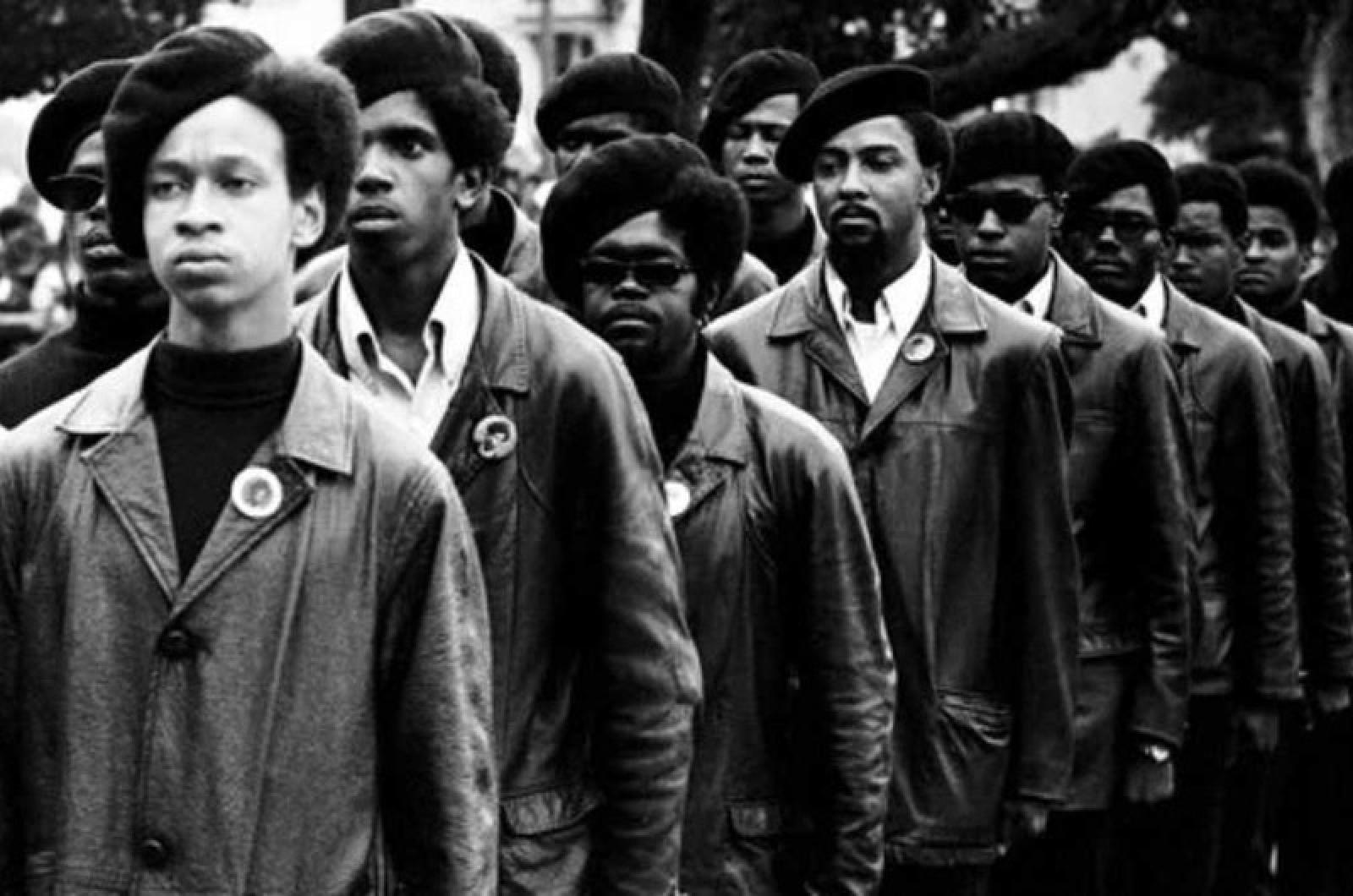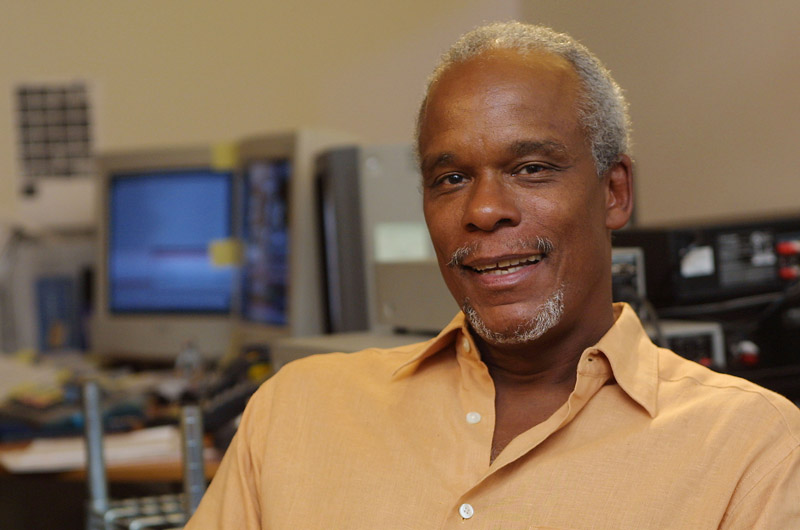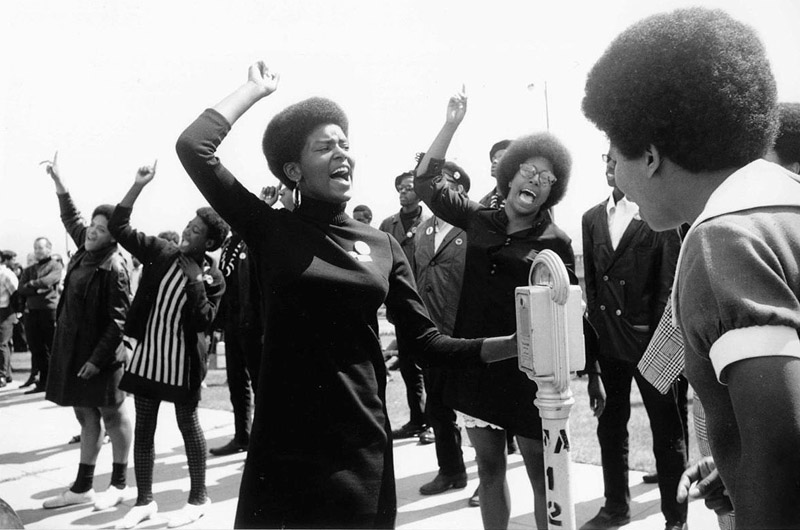Fifty years after the founding of the Black Panther Party in Oakland, Calif., its urgent call for change is as relevant as ever. Emmy award-winning filmmaker Stanley Nelson brings new focus to the party in his documentary The Black Panthers: Vanguard of the Revolution, which aired last month on PBS.
In an interview with the Gazette this week, Mr. Nelson highlighted the complex, confusing and sometimes contradictory nature of the party, which became a national phenomenon in the 1960s and in some ways redefined African American culture.
“They have been demonized and they have been mythologized, but you don’t really get a long, nuanced look at the Panthers,” he said.
Mr. Nelson’s film premiered at the 2015 Sundance Film Festival and has since shown in more than 150 locations around the country, including at the Martha’s Vineyard Film Festival last summer. A longtime summer resident of Oak Bluffs, he will speak at the Gazette next Tuesday as part of the newspaper’s Tuesdays in the Newsroom series.
The Black Panthers is the latest in a long list of films that Mr. Nelson has directed and produced, including Freedom Riders, in 2011, which chronicles the efforts to desegregate American interstate transit in the 1960s; and A Place of Our Own, about Oak Bluffs and its special place in the lives of many African Americans.
Against the backdrop of the Viet Nam War, civil rights activism at home and struggles for independence in Africa and Asia, the Black Panthers emerged as the vanguard of a new revolutionary culture. Its aggressive agenda for equal rights and autonomy, and a do-it-yourself attitude, created a sense of empowerment in many communities, but also stirred fear. Over a span of seven years, Mr. Nelson and his team obtained hundreds of hours of archival footage, from television stations, government archives and private collections, some of which had never been seen by the public. Along with handwritten letters, news clippings and a large number of interviews, the film recounts the rise and fall of the party, including its flaws and complexity.
Mr. Nelson interviewed more than 50 people for the film, including party insiders, journalists, police officers and historians, although only about 30 made the final cut. Some former Panthers appear alongside their younger selves in the film, creating a bridge between the past and present, and breathing new life into a movement that lives on in spirit, if not in name.
“Our attack was not only against white supremacy, but it was also about capitalism,” says former party member Phyllis Jackson in the film. Others reflect on the sense of freedom and new horizons they found in the party, and the importance of young people who were the lifeblood of the movement.
Along with its demands for freedom and justice, the movement brought the concept of “black is beautiful” to cities everywhere, where black oppression is still an everyday reality. Natural hairstyles and plain, almost military, apparel became a national hit through art and photography.
“If you were a young black man living in the city anywhere, you wanted to be like this,” civil rights leader Julian Bond says in the film. “You wanted to dress like this, you wanted to act like this, you wanted to talk like this, you wanted to be this.”
Music by the Chi-Lites, Eugene Blacknell and the New Breed and other early funk bands sets the mood in the film and underscores the revolutionary moment that the Black Panthers occupied.
The movement meant different things to different people. The writer Eldridge Cleaver, who became the party’s spokesman when its co-founder Huey Newton was imprisoned on murder charges (later dropped), called for violent revolution. Others used the party as a platform for social services and community building. But its growth resulted largely from an increasingly aggressive stance toward established power.
Looking back, former members say they greatly underestimated the response of the federal government, which launched a secret campaign to disrupt and neutralize the party. A series of bloody confrontations with law enforcement officers, along with a tangled web of disinformation and costly legal battles, weakened the party beyond repair. The killing by the Chicago police department of Fred Hampton, a gifted orator who had emerged as a party firebrand in 1969, further undermined the party, which unraveled over the next decade.
In some ways, the story of the Black Panthers continues today. Mr. Nelson refrains from mentioning Black Lives Matter and other movements that echo certain aspects of the party’s mission, but the connections are clear. He agreed that the film has become only more relevant since he began working on it eight years ago.
The Black Panthers is the first in a three-part series, America Revisited, that will explore key moments in African American history and air on PBS. The next installment, Tell Them We are Rising: The Story of Historically Black Colleges and Universities, is slated for completion next fall. The series will conclude with The Slave Trade: Creating a New World, which is still in the planning stages.
Many people may recognize the titles and subjects of his films, Mr. Nelson said, but his goal is always to cover new ground.
“There is certainly a lot of stories out there that have not been told very clearly and given the consideration that they should be given,” he said. “And that’s a place for filmmakers.”
Stanley Nelson will speak at the Gazette on Tuesday, March 8, at 5:30 p.m. To reserve tickets, go to tuesdays.bpt.me or call 508-627-4311. For more information, visit theblackpanthers.com.










Comments (6)
Comments
Comment policy »